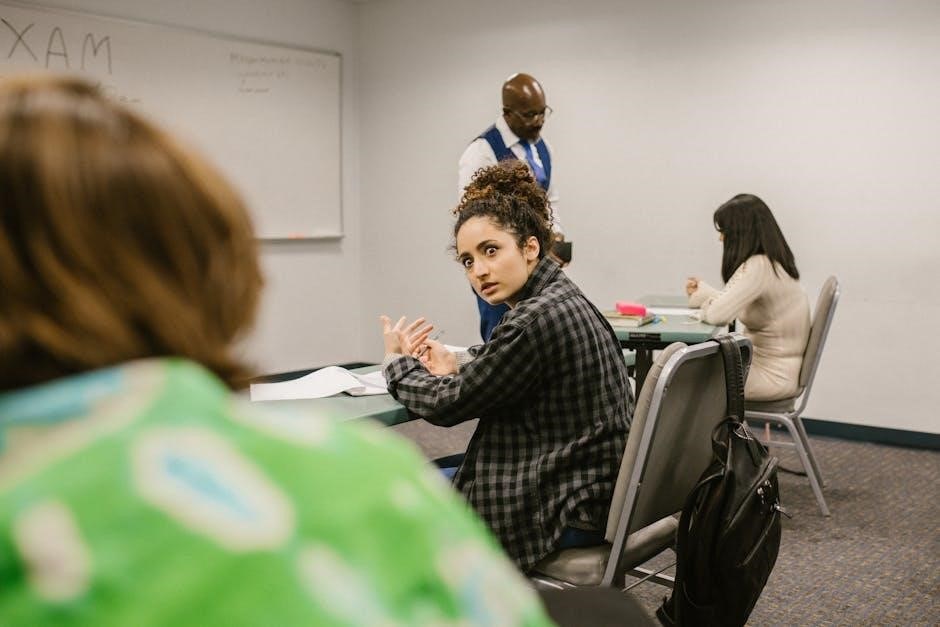This guide will show you 28 principal interview questions with sample answers, and how to prepare for a principal job interview.
As you prepare for your initial school principal interview, consider what type of questions you will be asked. By preparing and practicing answers to common questions, you can feel more confident and prepared to present your best self.
This comprehensive guide will cover common interview questions and provide you with the tools and strategies to answer effectively. By understanding the key areas that interviewers focus on, you can showcase your leadership skills, experience, and passion for education.
Remember, a successful interview involves not only providing answers but also demonstrating your personality, enthusiasm, and genuine interest in the position. Prepare well, practice your responses, and be ready to engage in a positive and insightful conversation.
Introduction
Landing a principal position is a significant step in your educational career, requiring a thorough understanding of the interview process and the skills needed to excel as a school leader. A principal interview is not just about answering questions correctly; it’s about showcasing your leadership qualities, experience, vision, and passion for education.
This guide is designed to equip you with the knowledge and strategies to navigate the principal interview process effectively. We’ll delve into common interview questions, provide sample answers, and offer insights into preparing for a successful interview. By understanding the key areas interviewers focus on, you can present yourself as a well-rounded candidate ready to lead a school with purpose and direction.
Remember, preparation is key to success. Take the time to understand the school’s needs and how your skills and experience align with their vision. Practice your responses, and be ready to demonstrate your commitment to student success, staff development, and school improvement.
Common Interview Questions
Principals are responsible for leading a school’s vision, managing staff, fostering student success, and overseeing school operations. Interviewers will ask questions designed to assess your leadership style, experience, and how you would approach these responsibilities. Here are some common questions you can expect⁚
- Tell me about your educational background and experience.
- Describe your leadership style and how you foster a positive school culture.
- How do you address challenges and find solutions in a school setting?
- What motivates you to be a principal, and what are your goals for this position?
- How do you envision improving student achievement and school performance?
- How do you integrate technology into the classroom to enhance learning?
- Share an example of how you have worked collaboratively with teachers and staff.
- What are your strengths and weaknesses as a leader?
- How do you handle conflict resolution and address difficult situations?
- What are your thoughts on school-wide discipline and classroom management?
These questions are designed to understand your approach to leadership, your understanding of school dynamics, and your vision for student success.
Background and Experience
Interviewers will want to understand your professional journey and how it has shaped your leadership skills and experience. They are looking for evidence of your expertise in education, your ability to manage complex situations, and your commitment to student success.
Prepare to discuss your educational background, including your degrees and certifications. Be ready to highlight any relevant coursework, research, or projects that demonstrate your understanding of educational principles and practices.
Share your experience in educational settings, including your roles, responsibilities, and achievements. Discuss specific examples where you demonstrated leadership, problem-solving, communication, or collaboration skills. Be prepared to talk about your successes as well as any challenges you faced and how you learned from them.
Remember to connect your experience to the specific requirements of the principal position. Highlight how your background aligns with the school’s needs and your vision for its future.
Leadership Style and Classroom Management
Interviewers are keen to understand your approach to leading a school and creating a positive learning environment. They want to know how you motivate and inspire staff, manage conflict effectively, and foster a culture of collaboration and respect.
Prepare to discuss your leadership style, emphasizing your strengths in communication, delegation, and decision-making. Share examples of how you have successfully implemented change, fostered teamwork, or addressed challenging situations.
Be ready to explain your philosophy of classroom management. Describe your strategies for creating a structured, engaging, and supportive learning environment. Highlight your methods for setting clear expectations, building relationships with students, and addressing disruptive behavior.
Demonstrate your understanding of the importance of creating a positive and inclusive school culture. Explain how you would promote student voice, celebrate diversity, and create a safe and welcoming space for all learners.
Challenges and Solutions
Principals face a wide range of challenges, from budget constraints and staffing shortages to student behavior issues and curriculum development. Interviewers want to assess your ability to handle adversity, think critically, and find creative solutions.
When asked about challenges, choose specific examples from your experience. Describe the situation, the steps you took to address it, and the positive outcomes you achieved. Focus on your problem-solving skills, adaptability, and ability to work collaboratively with others.
For instance, discuss a time you had to manage a budget shortfall, resolve a conflict between staff members, or implement a new curriculum initiative. Highlight your ability to analyze problems, gather input from stakeholders, develop strategies, and monitor progress.
Remember to emphasize your resilience, your commitment to finding solutions, and your willingness to learn from challenges. Demonstrate your ability to remain calm and objective in difficult situations and to inspire others to work towards a common goal.
Motivations and Goals
Interviewers are interested in understanding what drives you as a leader and what you hope to accomplish in a principal role. They want to see that you are passionate about education, committed to student success, and have a clear vision for the future.
When answering questions about your motivations and goals, be specific and genuine. Connect your personal values and beliefs to your professional aspirations. For example, you might talk about your desire to create a learning environment that fosters creativity, critical thinking, and a love of learning.
Share your vision for the school, including your goals for student achievement, teacher development, and community engagement. Demonstrate your understanding of the school’s context and your ability to align your goals with the school’s mission and values.
Be prepared to discuss your specific goals for the first year, the next five years, and beyond. Show that you are thinking long-term and that you are committed to making a positive impact on the school and its community.
Vision and School Improvement
A key aspect of a principal’s role is to articulate and drive a clear vision for school improvement. Interviewers want to understand your vision for the school, how you plan to create a positive learning environment, and how you will measure and assess progress.
When answering questions about your vision, focus on creating a culture of learning and excellence for all students. Talk about your commitment to equity and access, ensuring that all students have the opportunity to succeed.
Highlight your experience in leading school improvement initiatives, such as implementing new programs, developing curriculum, or improving school climate. Share specific examples of how you have successfully implemented change and achieved positive results.
Demonstrate your understanding of data-driven decision-making and your ability to use data to identify areas for improvement and track progress. Show that you are a visionary leader who can inspire and motivate others to work towards a shared goal.
Technology Integration
In today’s digital age, schools are increasingly relying on technology to enhance learning and improve teaching practices. Interviewers will want to know how you plan to leverage technology to create engaging and effective learning experiences for students.
Be prepared to discuss your experience with technology integration, including your understanding of current trends and best practices. Share examples of how you have used technology to support student learning, such as implementing online learning platforms, using digital tools for assessment, or fostering digital citizenship skills.
It’s important to demonstrate your understanding of the importance of equity and access in technology integration. Discuss how you will ensure that all students have equal opportunities to benefit from technology, regardless of their background or socioeconomic status.
Highlight your ability to collaborate with teachers and staff to develop a comprehensive technology plan that aligns with the school’s vision and goals. Show that you are a forward-thinking leader who can embrace technology as a valuable tool for student success.
Teamwork and Collaboration
Principals are expected to be effective team players and collaborators, working closely with teachers, staff, parents, and the community to create a thriving school environment. Interviewers will assess your ability to build strong relationships, foster a collaborative culture, and effectively lead a team.
Prepare to share examples of your experience working collaboratively with others. Discuss how you have built trust, encouraged open communication, and resolved conflicts effectively. Highlight your ability to empower others, delegate tasks, and provide constructive feedback.
Emphasize your commitment to shared decision-making and the importance of involving all stakeholders in the school’s success. Demonstrate your understanding of the value of diverse perspectives and the importance of creating a sense of community within the school.
Show that you are a leader who can inspire, motivate, and support others to work together towards common goals. Your ability to foster a collaborative environment is crucial for creating a positive and productive school culture.

Preparing for the Interview
A well-prepared interview is essential for showcasing your skills and experience. Take the time to thoroughly research the school, its mission, and its current priorities. Review the job description carefully and identify the key skills and qualifications that are most important to the position. Prepare a list of questions you have about the school and the position, demonstrating your genuine interest and initiative.
Practice answering common interview questions, focusing on your strengths, accomplishments, and experiences. Use the STAR method (Situation, Task, Action, Result) to structure your answers, providing specific examples that demonstrate your skills and abilities. Consider your personal values and how they align with the school’s culture and vision.
Plan your outfit to be professional and appropriate for the setting. Arrive on time, and be prepared to present yourself confidently and enthusiastically. Remember to relax and be yourself, allowing your personality and passion for education to shine through. A well-prepared and confident interview can make a lasting impression and increase your chances of success.




Be the first to reply